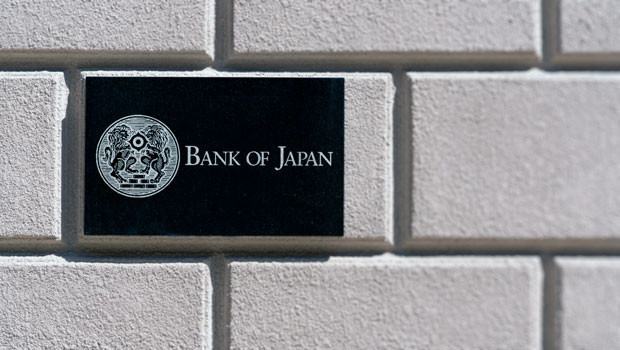
Source: Sharecast
The backdrop was dominated by the ongoing conflict between Israel and Iran, following US president Donald Trump's call for the evacuation of Tehran and his early departure from the G7 summit.
Fitch Ratings downplayed broader risks, stating that the conflict is expected to remain contained and short-lived.
“US and European stock futures dropped while oil prices increased after president Donald Trump urged for the evacuation of Tehran, a statement that sharply contrasted with the previous optimism regarding the Israel-Iran conflict not escalating further,” noted TickMill market strategy partner Patrick Munnelly.
“Gold prices saw volatility in response to Trump's remarks made during a social media update from the G7 leaders' summit in Alberta.
“It was unclear what he was referencing, although he had previously indicated that Iran was interested in negotiating.”
Markets mixed as investors watch Middle East developments
In Japan, the Nikkei 225 rose 0.59% to 38,536.74, supported by gains in major stocks including Oriental Land, which surged 4.81%, Dainippon Screen Manufacturing, up 4.43%, and Nintendo, which gained 4.14%.
The broader Topix index also advanced, adding 0.35% to close at 2,786.95, as the Bank of Japan kept interest rates unchanged, as expected.
China’s mainland markets edged lower, with the Shanghai Composite dipping 0.04% to 3,387.40 and the Shenzhen Component down 0.12% at 10,151.43.
Sentiment was hit by sharp losses among telecom and tech names, with Dr Peng Telecom, BGRIMM Science and Technology, and GuangDong Super Telecom all falling by the 10% daily limit.
Hong Kong’s Hang Seng Index dropped 0.34% to 23,980.30, weighed down by declines in health and consumer stocks.
Chow Tai Fook Jewellery tumbled 7.29%, while CSPC Pharmaceutical and Sino Biopharmaceutical fell 6.4% and 5.3%, respectively.
South Korea’s Kospi 100 rose 0.28% to 2,950.65, buoyed by a strong rally in industrials and materials.
SKC surged 15.49%, Hanwha Ocean climbed 7.85%, and Korea Zinc advanced 5.29%.
Australia’s S&P/ASX 200 slipped 0.08% to 8,541.30.
St Barbara led losses with a 14.47% plunge, followed by Healius and EML Payments, down 3.73% and 3.69%, respectively.
New Zealand’s S&P/NZX 50 fell 0.4% to 12,639.35, dragged down by weakness in the retail and property sectors.
KMD Brands dropped 7.94%, Ryman Healthcare declined 2.69%, and Investore Property slid 2.56%.
In currency markets, the dollar was last up 0.1% on the yen, trading at JPY 144.89, while it slipped 0.13% against the Aussie at AUD 1.5308, and retreated 0.12% from the Kiwi, changing hands at NZD 1.6480.
Oil prices rose as geopolitical tensions lifted energy markets.
Brent crude futures gained 1.53% on ICE to $74.35 per barrel, while the NYMEX quote for West Texas Intermediate added 1.45% to $72.81.
BoJ holds rates as expected, as Trump fails to reach deal with Ishiba
In economic headlines, the Bank of Japan kept its benchmark interest rate unchanged at 0.5% on Tuesday, as expected, while announcing plans to slow the pace of government bond purchases beginning April 2026.
The move came amid rising uncertainty over global growth and unresolved trade tensions with the United States.
“The Bank of Japan maintained its key interest rate and announced a plan to reduce its bond market withdrawal gradually starting next year, signalling caution amid rising market volatility,” TickMill’s Patrick Munnelly said.
“The central bank intends to slow the pace of its monthly bond purchases from the current JPY 400bn to quarterly reductions of JPY 200bn beginning next fiscal year.
“In his press conference, BoJ governor [Kazuo] Ueda emphasises the need for flexibility in policy despite bond-buying plans.”
Munnelly said the central bank might need to speed up tapering this year, but would adjust based on the situation.
“The economy is recovering, with inflation expected to hit the 2% target.
“Uncertainties include tariffs and geopolitical developments, as the BoJ remains hawkish and seeks optimal timing for future rate hikes.”
Following the BoJ’s announcement, yields on Japanese government bonds rose, with the 10-year yield climbing nearly three basis points to 1.482%, while 5-year and 30-year yields also edged higher.
Separately, Japanese prime minister Shigeru Ishiba and US president Donald Trump failed to reach a trade agreement during talks at the G7 summit in Canada.
Key issues remained unresolved, including steep US tariffs on Japanese cars, steel, and other goods.
Without a deal by the 9 July deadline, Japanese goods were facing a broad increase in US tariffs, with a 10% baseline rate set to rise to 24%.
Despite the uncertainty, analysts at Nomura said they expected Japan to avoid recession this year, forecasting annualised growth of 0.5%, supported by a resilient services sector.
However, they warned the economy could still suffer a 0.3 percentage point drag from the trade dispute.
In Singapore, non-oil domestic exports fell 3.5% year-on-year in May, sharply missing economists’ expectations for 8% growth.
The decline marked the steepest drop since October 2024, driven by weaker exports of petrochemicals, non-monetary gold, and machinery, despite a modest rise in electronics shipments.
On a monthly basis, exports slumped 12% in May, reversing a 10.4% increase in April.
Reporting by Josh White for Sharecast.com.